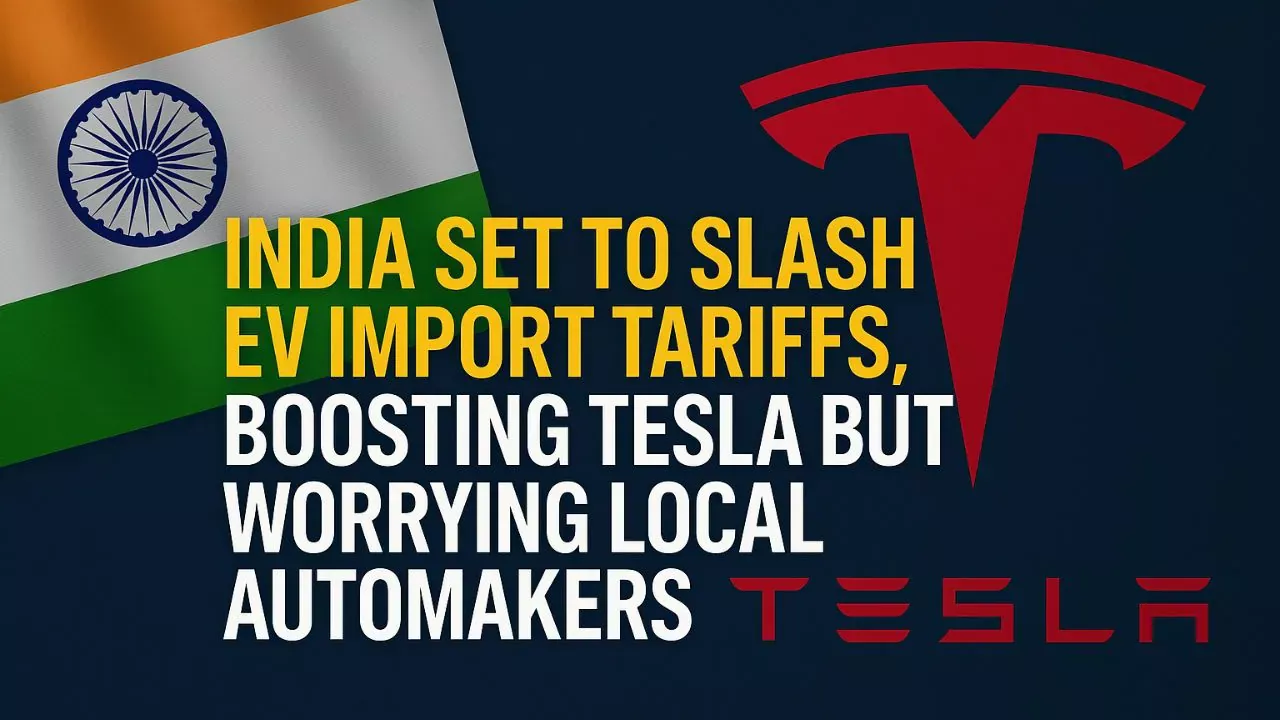India is moving forward with plans to lower import tariffs on electric cars, rejecting requests from domestic automakers to delay the move until 2029. The decision comes as part of India’s efforts to strengthen trade ties with the United States, despite concerns from local manufacturers like Tata Motors and Mahindra & Mahindra.
Why is India Cutting EV Import Tariffs?
The Indian government is negotiating a trade deal with the U.S., and reducing tariffs on electric vehicles (EVs) is a key part of these discussions. For years, India has been criticized for its high import duties—which can reach up to 100% on certain vehicles—making it expensive for foreign carmakers like Tesla to enter the market.
By cutting tariffs, India hopes to:
✅ Improve trade relations with the U.S.
✅ Encourage more global EV brands to sell in India
✅ Speed up EV adoption and reach its goal of 30% EV sales by 2030
A government official involved in the talks stated:
“We have protected the auto industry for too long. It’s time to open up.”
What Does This Mean for Tesla?
The big winner of this move would be Tesla, which has already set up showrooms in Mumbai and New Delhi and is preparing to sell cars in India this year. Elon Musk has been vocal about the high tariffs, and former U.S. President Donald Trump also criticized India’s import policies, calling it a “tariff king.”
If the duty cuts happen soon, Tesla and other global automakers will be able to sell their cars in India at much lower prices, making them more accessible to Indian buyers.
Why Are Indian Automakers Opposed to This?
Indian car manufacturers Tata Motors and Mahindra & Mahindra have invested heavily in local EV production, expecting government protection until at least 2029. They worry that allowing cheaper imported EVs will hurt their sales and reduce the impact of government incentives meant to promote local EV manufacturing.
Key concerns from Indian automakers:
🚗 More competition from foreign brands
⚡ Threat to local EV industry growth
📉 Risk of reduced investment in domestic EV production
A trade deal with the U.S. could also set a precedent for similar agreements with the European Union and Britain, further increasing competition in India’s fast-growing EV market.
What’s Next?
The Indian government has not disclosed the exact tariff reduction yet, as discussions with the U.S. are still ongoing. However, it is clear that changes are coming soon.
While domestic automakers are pushing for a phased reduction over time, the government is prioritizing trade negotiations and rapid EV adoption. This move could reshape India’s electric vehicle industry and make global brands more accessible to Indian consumers.
Will India’s EV industry thrive with foreign competition, or will local players struggle to keep up? Let us know your thoughts!

